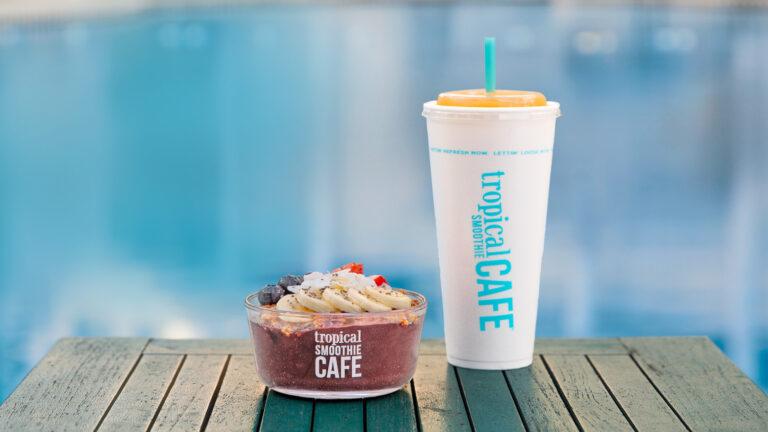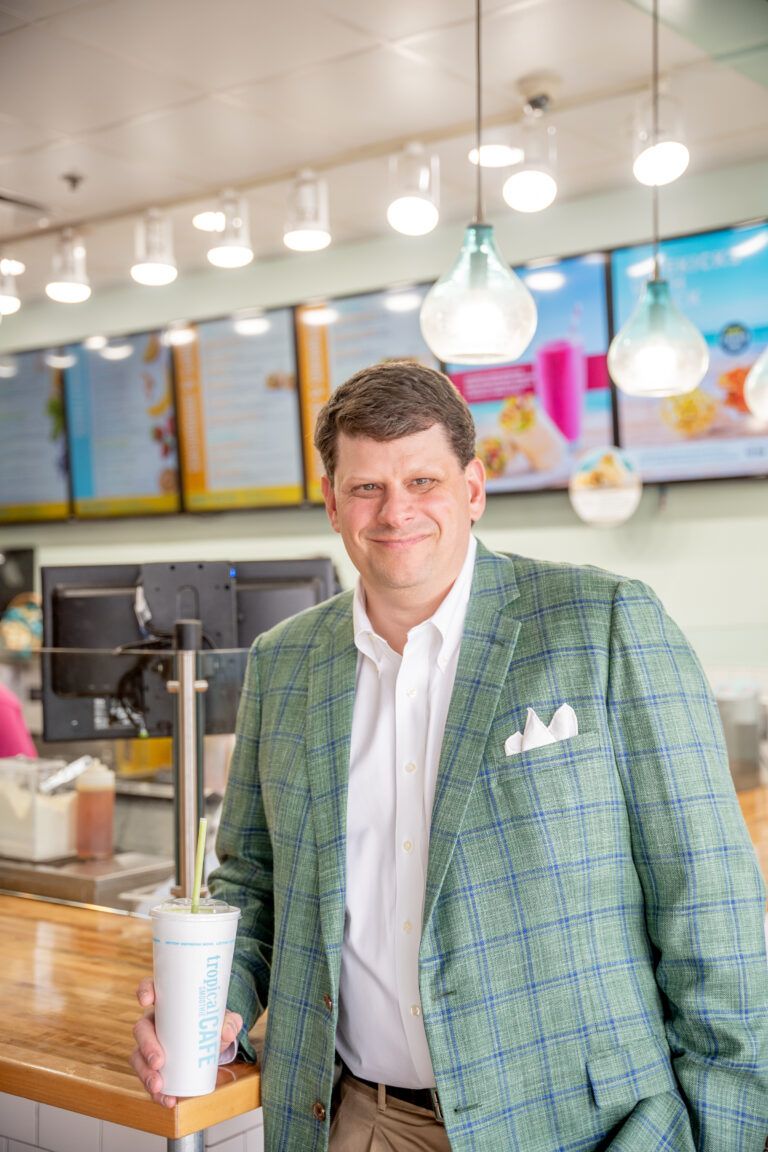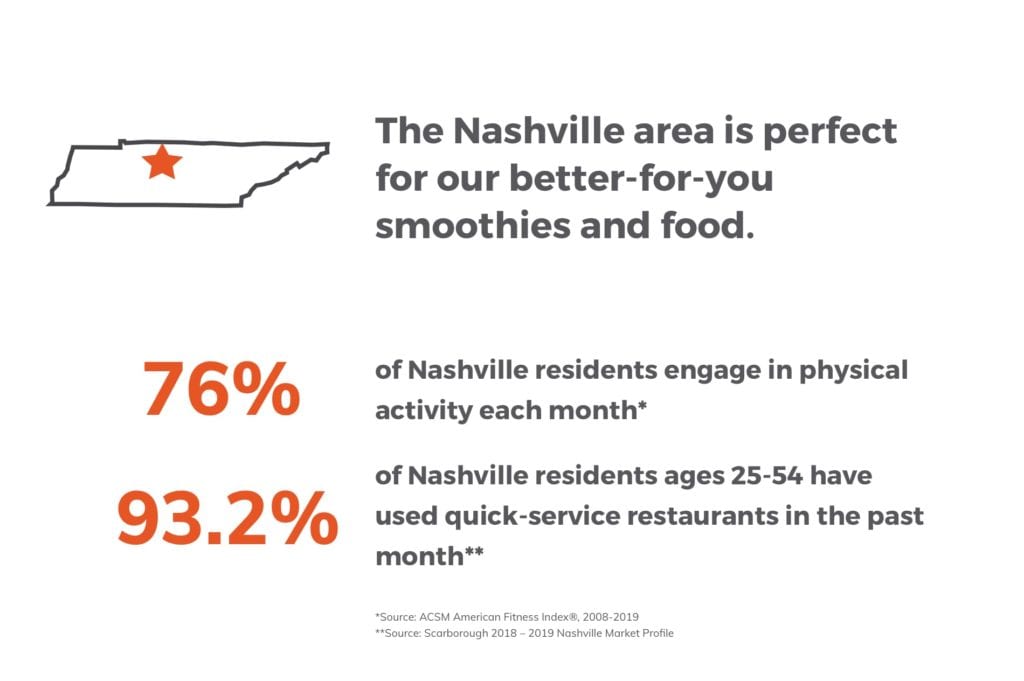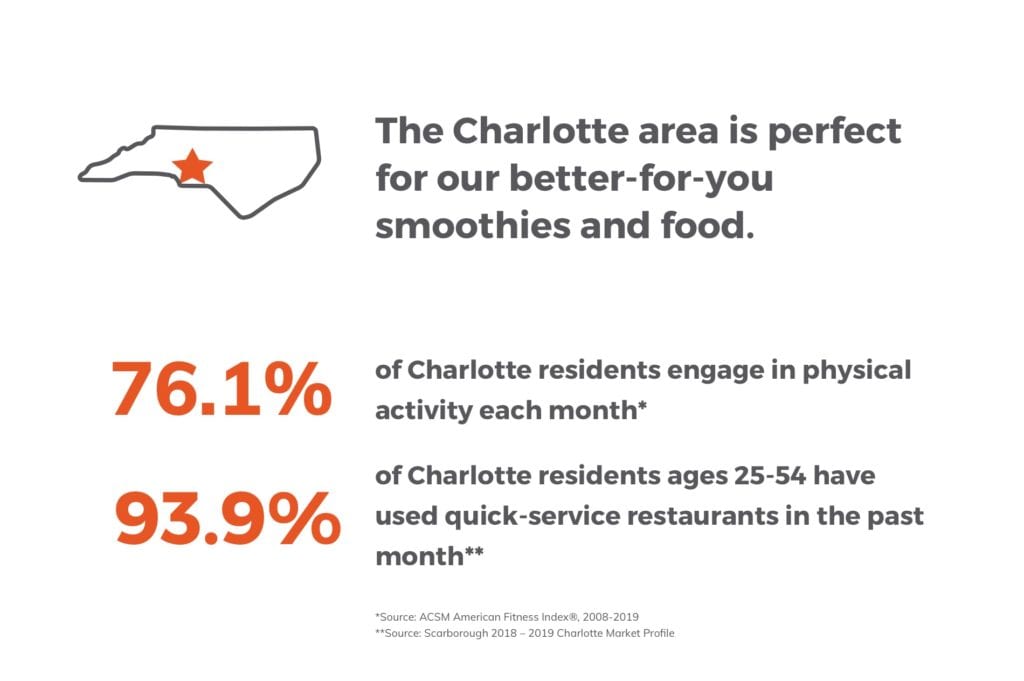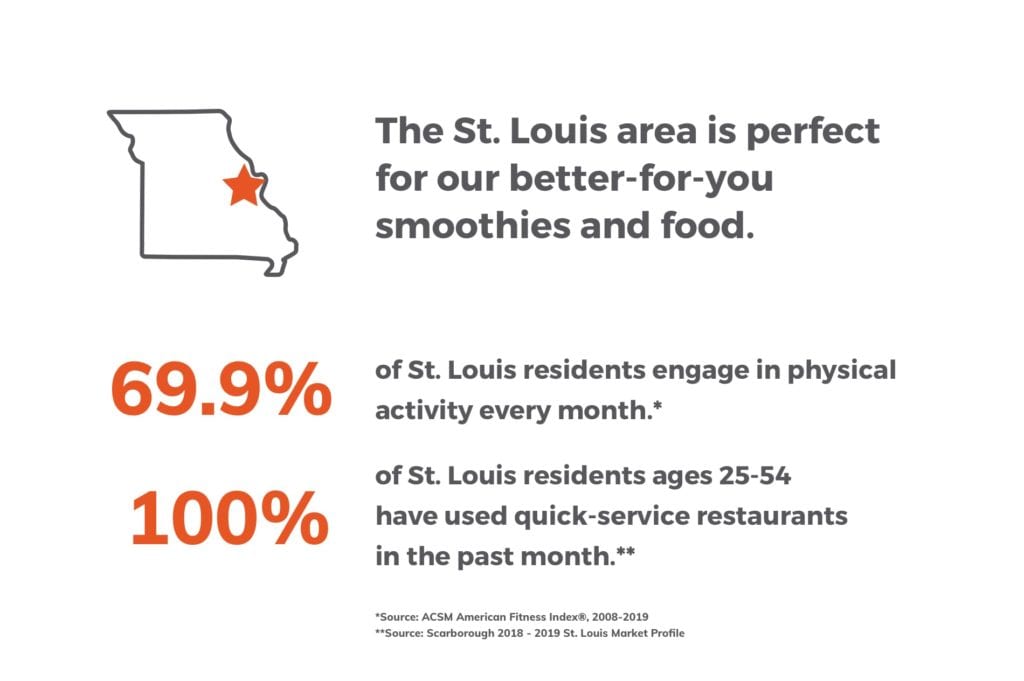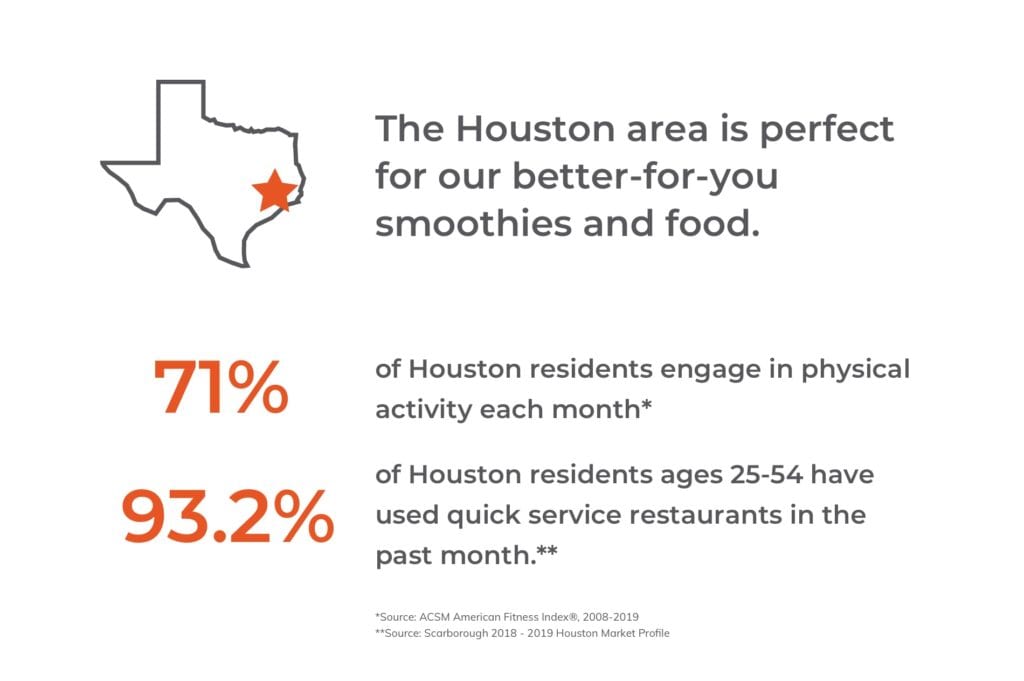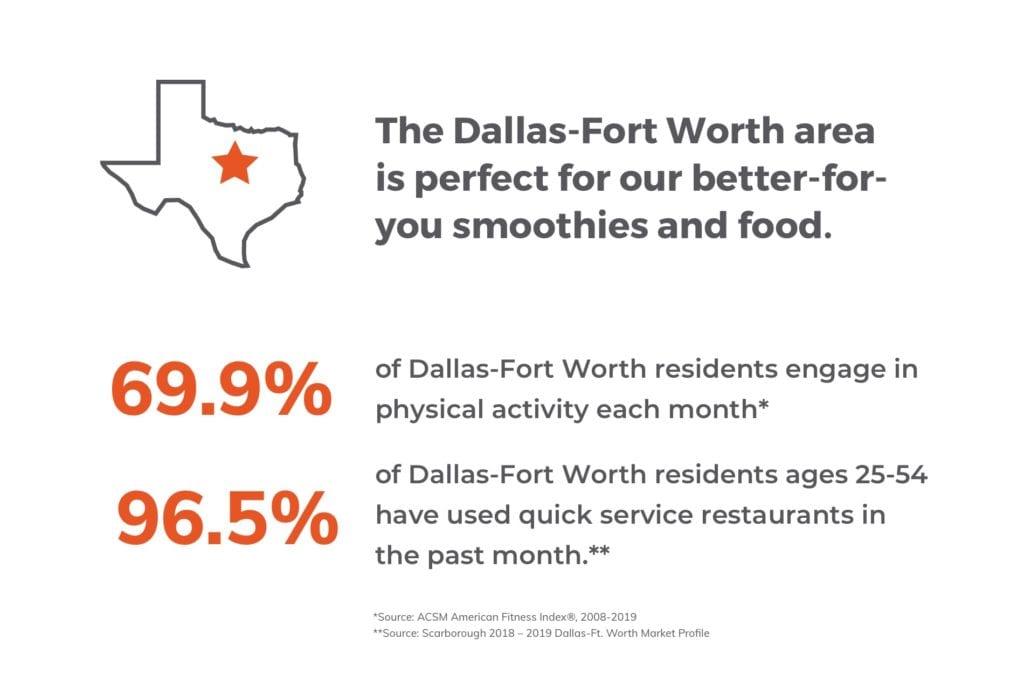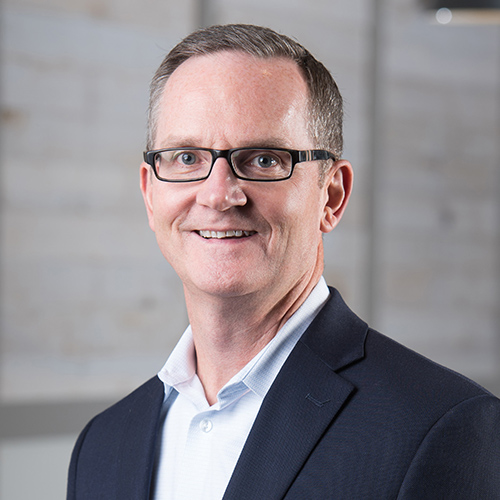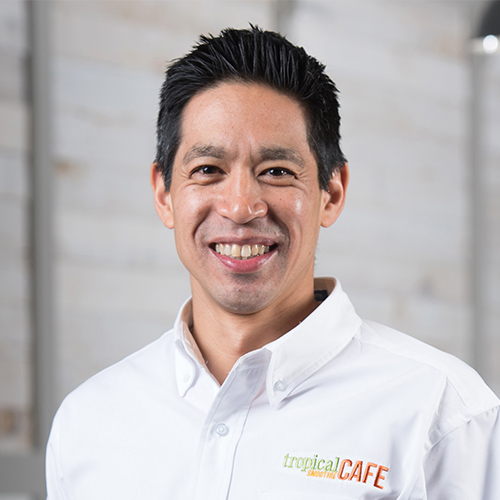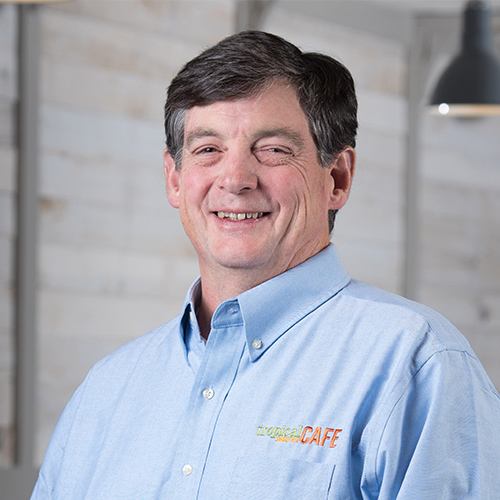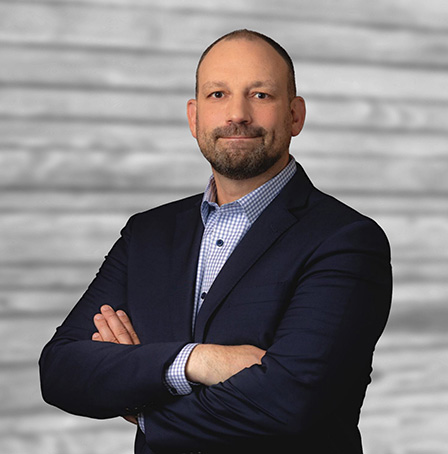Published on: June 15, 2021
Terry College of Business | Ray Glier | June 8th, 2021
With a ‘hospitality first’ attitude, Tropical Smoothie Café CEO Charles Watson (MBA ’05) steadily expands and adapts the restaurant chain.
It is a sunny day, and on the sidewalk outside of his beloved smoothie joint in Dunwoody, Tropical Smoothie Café CEO Charles Watson leans back in his chair and brings his right leg up to rest on his left knee and … what’s that?
Glue.
You see it because the edge of the sole of his shoe has come loose on the instep. It sure is dried glue, just a spec. The shoes are Gucci. Watson (MBA ’05), the man running a chain of Cafés that will do $1 billion in annual sales by 2024, and who has grown Tropical Smoothie Café to 940+ franchise locations in the U.S., with 700 more Cafés in the pipeline, flicks at the loose sole with a finger. He explains his shoes are 12 years old. Watson has had these Guccis resoled seven or eight times.
“Might have to replace these soon,” he says.
So, you come to a quick understanding about Watson, 44. He wears Gucci loafers, but the man does indeed walk the walk, even if the walk is in expensive shoes. Be prudent, get out from behind the desk, and burn shoe leather on the pavement. It is the hospitality industry, after all. Alternately rejoice and scheme and commiserate and stand with the hard-working as they stand over the smoothie blender in their worn shoes. Watson will do more than commiserate.
In those Guccis, he will jump in and wash dishes.
“Can I make a smoothie? Yes. Am I the best at it? No,” Watson says. “But I’m pretty good at washing dishes.”
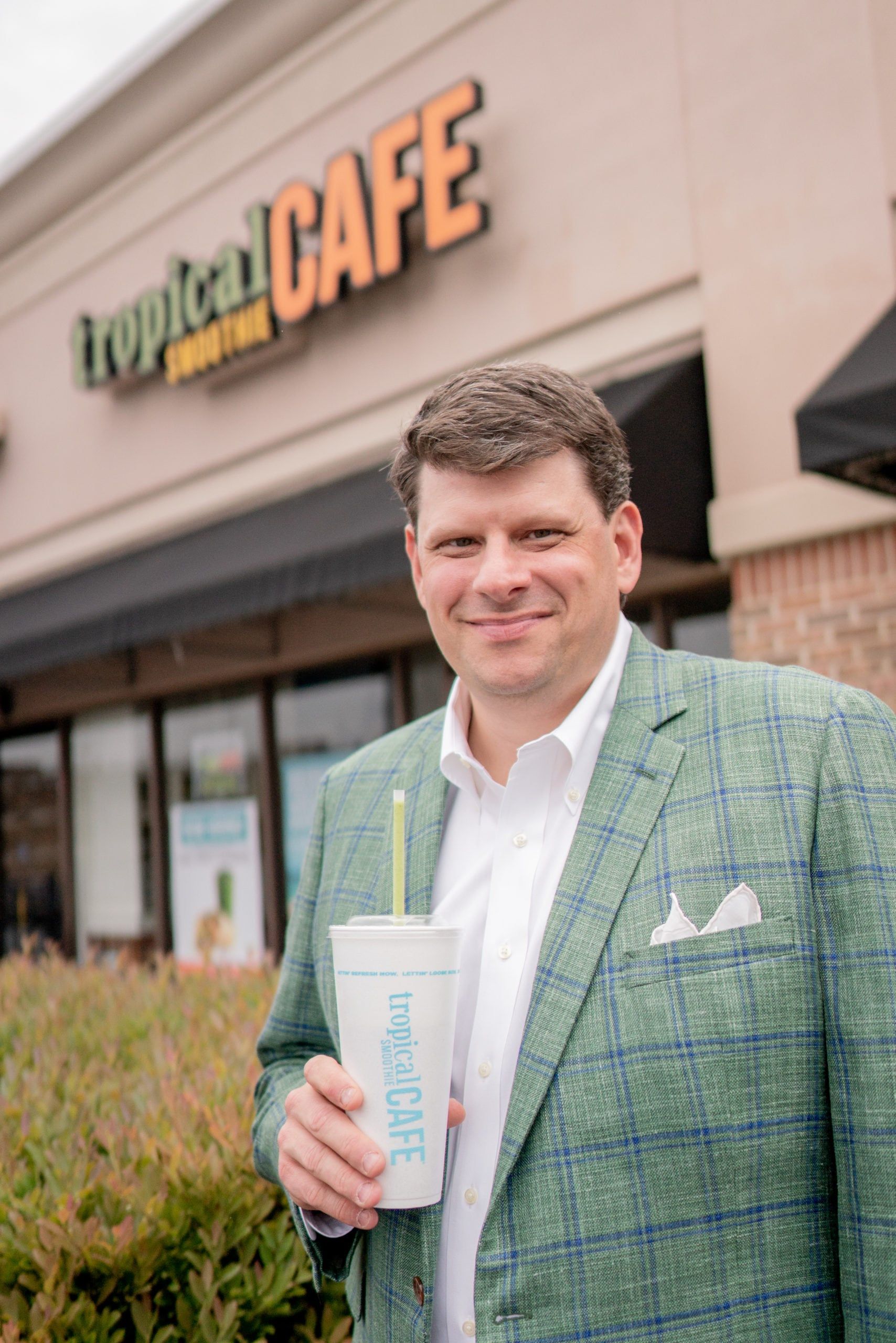
He practiced his craft early. Not smoothies. Washing dishes. Watson stood on a plastic tub used for busing tables so he could reach the water hose to wash dishes in his father’s restaurant. He was 11 years old. Later, as a teenager and college student, he came home from his father’s restaurant at midnight and got out of the clothes with smears of grease and Comet cleaner, only to be back up at 6 a.m. so he could collect more grease and Comet on his clothes. No job was beneath Watson in those first six years in the restaurant business because, after all, he was already at the bottom.
The Watson do-the-work ethos was legitimately passed down. He saw his dad, George, wearing an Oxford shirt, khakis, and loafers one day while plunging the stopped-up toilet in one of his restaurants. His mother, Mary, had her Eastern Airlines pension fleeced by ownership, Watson says, so she built from scratch a thriving business in cosmetics, which put him through the private Lovett School and Cornell of the Ivy League.
“I don’t mean to put myself in a Charles Dickens novel, or something like that, I was given many opportunities and a great education, but I think my parents showed me the way with their own work,” Watson says. “You do learn things through osmosis. It was never, ‘Oh, you’ve worked too much, you need to go home now.’ No, it’s more like, ‘You’re here until we’re done.’
“Finish the job. It’s a matter of get it done and you don’t get to decide the quitting time.”
Watson calls it “chopping wood,” and it was one of the reasons Tropical Smoothie Café opened 99 new restaurants in the 2020 pandemic year, growing sales by 7.5 percent while many other restaurants were shutting down. The brand is now on pace for double-digit comp sales and opening 130 locations in 2021.
“I’ve been blessed with great leaders who are very experienced, and who have varying backgrounds and varying points of view, and we all came together during this to gel as one,” Watson says. “One thing that everybody knew how to do, and probably why I hired them, is they all knew the value of chopping wood. As a leadership team, we viewed the pandemic as an ‘opportunity is now here’ — not ‘opportunity is nowhere’ — moment in the history of the brand.”
The biggest opportunity was expanding the Tropical Smoothie Café digital reach before doors to restaurants started slamming shut in spring 2020. The headquarters, in Sandy Springs just north of Atlanta, pressed franchisees around the U.S. to lash themselves together with Grubhub, Uber Eats, DoorDash and the brand’s app.
“We had been pushing digital, but it went from pushing it to ‘it’s absolutely mandatory in this environment,’” Watson says. “Our franchisees responded and signed on to these different sales channels, and the lift of that helped us through.”
Perhaps the most significant tactical move, a vow of solidarity, was to cut royalties 50 percent for two months. It was not a loan. Franchisees did not have to pay back the money.
This is why Watson was named full-time CEO of Tropical Smoothie Café in December 2018 after a six-month stint as interim CEO. He was charged to grow the brand and make sure the foundation was cast in concrete with deft moves. Before that, he was the company’s vice president of franchise development and chief development officer. He has overseen growth in locations from 300 to 940+ with the goal of 1,500 by 2025. The goal is for each franchisee to have $1 million in sales and 18 percent profitability each year.
It helps that Watson has a presence about him, not just in work ethic, but a fill-the-doorway presence. He is 6-foot-3, 250+ pounds. His size meant he could be an athlete, and he played quarterback for Lovett in high school. But when he got to college at Cornell the humbling began, and it was just another business lesson. Watson was back to being a role player, just like in his dad’s restaurants when he scrubbed pots and pans. His feet weren’t quick enough to play Division I quarterback, but one foot was plenty strong enough to be a punter for the Big Red and that’s what he did for four years.
Watson has three of the six longest punts in the 133-year history of Cornell football (73, 74, 75 yards).
His two best seasons — averaging 40.76 yards per punt in 1997, 40.15 in 1998 — rank in the top 10 all-time at the school. He is prouder of this: Before the corporate headhunters came to find him on campus in Ithaca, N.Y., he was something of a headhunter on the football field with two unnecessary roughness calls and a late hit.
“If I was going to get on the field just four or five times, I wanted to get my licks in on special teams and feel like I was out there, part of the game,” he says.
More important, Watson says his college football career, “taught me a huge lesson in terms of being a role player.”
Watson relishes his football moments and sometimes has to explain his business lessons learned through playing football to his team of non-football devotees. Like this one, told with a smile and gentle dig at southern kickers: “I had to punt the ball in the northeast where it is cold and rainy and there is snow on the field. Would have loved kicking down here on a nice sunny Saturday. You had to be resilient.”
That resilience tracks right back to his mother and father. The harsh lessons of business are indelible memories because his father’s restaurant empire, which was launched with college friends in the late ’60s, swooned in the ’90s.
“I’ve seen scary before,” Watson says, “and scary is the inability to adapt. It is my dad making the same bad decisions over and over again. Ultimately, I learned you have to adapt and change. Overcoming fear is a big thing and that is my focus on being a visionary leader people trust.”
The company built an acronym to describe that culture, Watson says.
TRUST
The “T” is for transparency. Tell it like it is. The “R” is responsibility. This isn’t two-hand touch football, Watson says. It is a street-corner business. Everyone has to do their job. The “U” is unique because the company has more than 400 “unique franchisees” and more than 100 “unique individuals” at the corporate office.
“We’ve got to let people be themselves,” Watson says. “It’s also important from a diversity, equality, inclusion perspective, which is the right thing to do.”
The “S” is for service-oriented. “There isn’t an “H,” in the word trust for hospitality, but we are in the hospitality industry and we can never forget that,” says Watson.
The “T” is for tenacious. “Do you have to be chained to the business? No. But how do you know the business without at some point being there from 6 in the morning to 8 at night?” Watson asks.
He knew the business of hospitality from his studies at Cornell and his first jobs out of college, which were connected to real estate and hotels, but Watson had bigger goals for his career. That’s why he went to the Terry College for his MBA in 2003, just four years into his professional life.
“I’m a believer in education. I wanted to get smarter, and I wanted to get better,” Watson says. “I felt like there were holes in my education, not because Cornell had holes, but because a 19-year-old Charles Watson maybe wasn’t as focused on his schooling as he should have been. I wanted to shore up areas that I didn’t feel as strong and, for me, that’s finance and accounting. Sales and marketing, I was pretty strong on.”
Watson can summon that sales and marketing cache in an instant. The first thing he says to a visitor is, “Can I get you something, a smoothie?” His hospitality radar is always on, which is not something he learned at Cornell, or Terry, but is simply part of his personality.
“I’ve always been attracted to hospitality, in terms of serving others,” Watson says. “Hospitality is fun to me. The greatest, the greatest thing you can do in this life, I think, is to serve. You can say it all day long, but when you actually feel it, you like serving others, you get that jazz or that thrill out of it.”
“I do service in a different way now as a CEO and as a leader with franchisees and with my corporate staff, but it is something that I learned early on when I waited tables, or I tended bar. If you do a good job, there’s a monetary reward. And I liked that monetary reward. It was a direct connection for me, the harder I worked, the more hospitality I provided, the more remuneration financially.”
At the end of an interview, Watson popped up from the sidewalk chair, and walked into the Café and saw a crowd of customers. The three-person crew was a beehive of activity behind the counter trying to catch up to the rush. Watson took the pressure off by walking around the restaurant and handing out free drink cards to each customer. Their wait was more palatable because the CEO of Tropical Smoothie Café has “hospitality first” stamped on his conscious and a pair of shoes used for walking among his customers to show how hospitality works from the top down.


